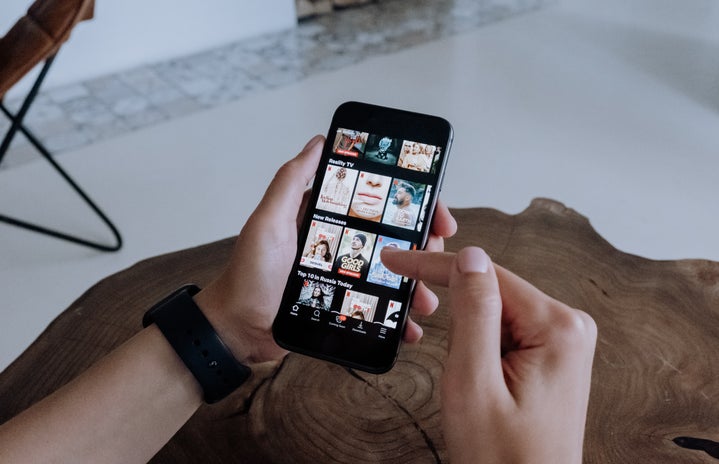I have been watching the CBS Reality TV show Big Brother since I was in fifth grade. I was born and bred into a family that watches this show religiously every Wednesday, Thursday and Sunday night, so I pride myself on knowing the ins and outs of the show — for being a superfan. So why, after watching more than 10 seasons of this show, did I so poorly choose my expected final two winners this season? Because I bet my money (albeit stupidly) on the straight white men in the house.
Let me explain my reasoning.
Throughout 22 seasons of Big Brother, there have been an overwhelming majority of white winners. That is, 19 out of 22 victors, or 86%, leaving only three of the winners as people of color, none of whom were Black. And to top it all off, 13 of these 19 white victors were men.
That might seem like a lot of numbers. But to sum it all up, white men tend to win (a shocking and not at all common outcome in our patriarchal society).
So walking into this season, I thought it was a safe bet to choose houseguests Brandon “Frenchie” French, a white farmer from Tennessee, and Brent Champagne, a white flight attendant from Rhode Island, as my expected winners for this season in a competition with my friends. Oddly enough, they were two of the first people to be evicted and sent home from the Big Brother house this season. Was this just an odd and random break from the pattern that has governed the winners of this show for the past 22 seasons?
No. There was nothing random about it at all.
Just this November, CBS announced a goal to have “50% of all casts in its unscripted shows [be] Black and Indigenous People of Color (BIPOC).” As a result, for the first time since its inception in 2000, the Big Brother casting directors cast a groundbreakingly diverse group of people in this season. This included five Black houseguests and one biracial South African and Indian houseguest, as well as one Chinese-American player, one Puerto Rican cast member and three LGBTQ+ houseguests — very different from the previous years’ casts. For any regular viewer of Big Brother, this diversity is pretty much jaw-dropping, and it is something that deserves to be talked about — and dissected.
So let’s dissect this intentional diversity and see how it has changed the name of the game for the houseguests this season:
Why is the large number of Bipoc people in the house important?
For the first time in Big Brother history, the BIPOC people in this cast are not a physical minority and are not completely outnumbered by white houseguests. To put it simply, there is power in numbers. In previous seasons, the people of color were almost always targeted and evicted first by the large majority of white houseguests.
Let’s dig into the past to exemplify this: In Season 21, white houseguest Jackson Michie, who went on to win the season backing up our narrative of white, male winners, won a power during the first week that allowed him to “nominate” two houseguests of his choice. With no strategic reason backing up his decision, he put up the only two Black houseguests in the house. He was quickly faced with ridicule by many Big Brother watchers because his nomination seemed motivated by race. As the season progressed, a large alliance of white houseguests (including Michie) formed, and the minorities were continually targeted. This has happened time and time again on the show because the white cast members have always outnumbered the people of color.
However, this year, the BIPOC in the house have been given a fighting chance. They have been able to work together to clear a path to the end and have a very good chance of coming out on top in the end. Thank you Big Brother Season 23!
But is it enough for CBS just to increase the number of BIPOC represented? Well, no. Let’s keep dissecting this.
How is Big Brother depicting the Bipoc houseguests?
Aside from how many BIPOC people are being represented, we must also touch on how they are being represented. This has been a huge topic in the world of reality tv and media over the past couple of years.
Let’s dig into the past again: previous cast member Kemi Fakunle exposed Big Brother producers for encouraging her to behave in a stereotypical manner as a Black woman. She said she was told to “wag her finger” and talk in ways that were not natural to her. Another houseguest, Da’vonne Rogers, also brought up her own experience with this forced stereotype in the house.
While there are more BIPOC represented this season, I have not seen complete erasure of these stereotypical depictions of our BIPOC houseguests. I can think of more than one incident this season where they have used a stereotype to further a narrative (i.e. Azah having a “middle school crush.”) Is this just the vice of reality tv? I don’t think so. I think Big Brother can and should do better at representing BIPOC, especially Black women. So, in terms of Season 23, I think Big Brother has more work to do in this regard.
What about ‘The Cookout’ Alliance?
While I still see evidence of stereotypes used against BIPOC this season, I do love the way CBS is depicting ‘The Cookout’ — the alliance made up of the six Black houseguests. This alliance is a force to be reckoned with this season and is being shown as such. No one can deny the power they hold as they have successfully flipped the narrative on what we usually see each year by having evicted almost all of the non-minority houseguests. They have made it abundantly clear that their main goal is to have this season be the first won by a Black player, and each week they are edging closer to that goal. ‘The Cookout’ will go down as one of my favorite Big Brother alliances, for sure.
What will it mean for a black houseguest to win?
Being the first Black houseguest to win Big Brother has been a major motivator for many players in previous seasons. One Black houseguest, David Alexander, who starred in both Season 21 and Season 22 stated, “The reason I wanted to win, the reason I wanted to compete and be on this show [is] I want[ed] to be the first, like, Black person to win Big Brother. I wanted to represent African American culture in a different light, I wanted to show that.” His feelings have been reiterated time and time again by people of color who have come to compete on the show. They have spoken of bigger motivators than the cash prize at the end — motivation that lies in social change and representation of their community. A win will allow for this much needed representation.
“I wanted to represent African American culture in a different light.” – David Alexander
So to wrap it all up, why is it important for a Black houseguest to win this season? Why is the diversity in Season 23 the thing that is most noteworthy and most important to talk about? Why am I happy that my final two were sent packing in the first couple of weeks?
Because representation is important. Accurate representation is important. “If you see people who look like you and act like you and speak like you and come from the same place you come from … it serves as an inspiration,” quoted a teen when asked about representation in the media by PBS. Yes, reality tv is entertaining. Yes, we love the drama and the show-mances and Julie Chen-Moonves. But what if Big Brother could be more than all of this? What if Big Brother could serve as an inspiration by accurately representing a multitude of BIPOC and giving its viewers someone to relate to?
“If you see people who look like you and act like you and speak like you and come from the same place you come from… it serves as an inspiration.”
Big Brother made a large step in representing more BIPOC in Season 23 this year, however, we know that they still have work to do to accurately represent their players. I believe a win by one of the Black players will not only be a monumental, inspirational and historical moment in the world of Big Brother, but it will also force CBS to take a large stride forward in how they represent the BIPOC houseguests in the future.
So, let us manifest this as I try on my best Julie Chen-Moonves impression:
The winner of Big Brother 23 is…
Azah Awasum, or
Derek Frazier, or
Hannah Chaddah, or
Kyland Young, or
Tiffany Mitchell, or
Xavier Prather.

